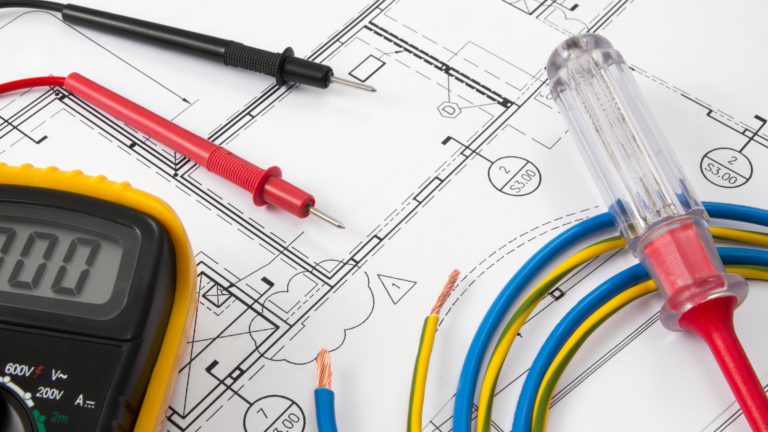Understanding Electrical Code Requirements by Room

When it comes to the safety and functionality of your home’s electrical systems, understanding and adhering to electrical code requirements is paramount. The National Electrical Code (NEC) provides comprehensive guidelines to ensure that electrical installations are not only efficient but, more importantly, safe. One aspect often overlooked is the specificity of code requirements for each room in your home.
In our latest blog article, our team dives into the key electrical code requirements by room, shedding light on the importance of compliance for a secure and seamlessly functioning household. Take a look!
Kitchen
The kitchen, often considered the heart of the home, demands special attention when it comes to electrical installations. Code requirements in the kitchen prioritize safety and efficiency. GFCI (Ground Fault Circuit Interrupter) outlets are mandatory for countertop receptacles, preventing electrical shocks in wet areas. Additionally, dedicated circuits for major appliances such as refrigerators and dishwashers are essential, ensuring they receive a consistent power supply without overloading shared circuits.
Bathroom
Bathrooms are another high-moisture area where safety is paramount. GFCI protection is a must for all outlets, including those near sinks and bathtubs. Installing outlets at least 36 inches away from water sources reduces the risk of electrical accidents. Lighting fixtures must be rated for damp locations, ensuring longevity and safety in the humid bathroom environment.
Bedrooms and Living Rooms
In sleeping and living spaces, electrical code requirements focus on safety and convenience. Bedrooms must have AFCI (Arc Fault Circuit Interrupter) protection, which detects and mitigates electrical arcs, minimizing the risk of fires. Additionally, at least two separate 20-ampere circuits are recommended for bedroom receptacles to accommodate various electronic devices without overloading the circuit.
Living rooms, being multifunctional spaces, should have ample outlets to accommodate entertainment systems, lamps, and other electronic devices. AFCI protection is also advised to enhance overall safety in these areas.
Home Office
With the rise of remote work, many households now include a dedicated home office space. Electrical code requirements for home offices prioritize sufficient outlets for computers, printers, and other electronic equipment. Wiring should be capable of supporting the increased demand for power in these areas. Grounding outlets and utilizing surge protection devices further safeguard valuable electronic equipment from power surges.
Laundry Room
Laundry rooms house appliances with high energy demands, such as washers and dryers. Dedicated circuits for these appliances prevent overloading and ensure consistent power supply. GFCI protection is required for outlets in laundry areas to reduce the risk of electrical shocks, given the potential for water spillage.
Garage
Garages are versatile spaces often used for various activities, from automotive work to DIY projects. Electrical code requirements in garages mandate GFCI protection for outlets and the installation of at least one lighting fixture. Dedicated circuits for power tools and appliances contribute to a safer and more functional workspace.
Understanding and adhering to electrical code requirements by room is essential for creating a safe and efficient home environment. Whether you’re renovating, building a new home, or simply upgrading your electrical system, compliance with these guidelines ensures that your household operates smoothly and, most importantly, safely.
Prioritizing electrical safety not only protects your property but also guarantees the well-being of your loved ones. So, before you embark on any electrical project, take the time to familiarize yourself with the specific code requirements for each room, ensuring a secure and reliable electrical infrastructure throughout your home.
Or, better yet, leave the electrical work to the professionals! Click here to request a free quote from Countryside Electric.

